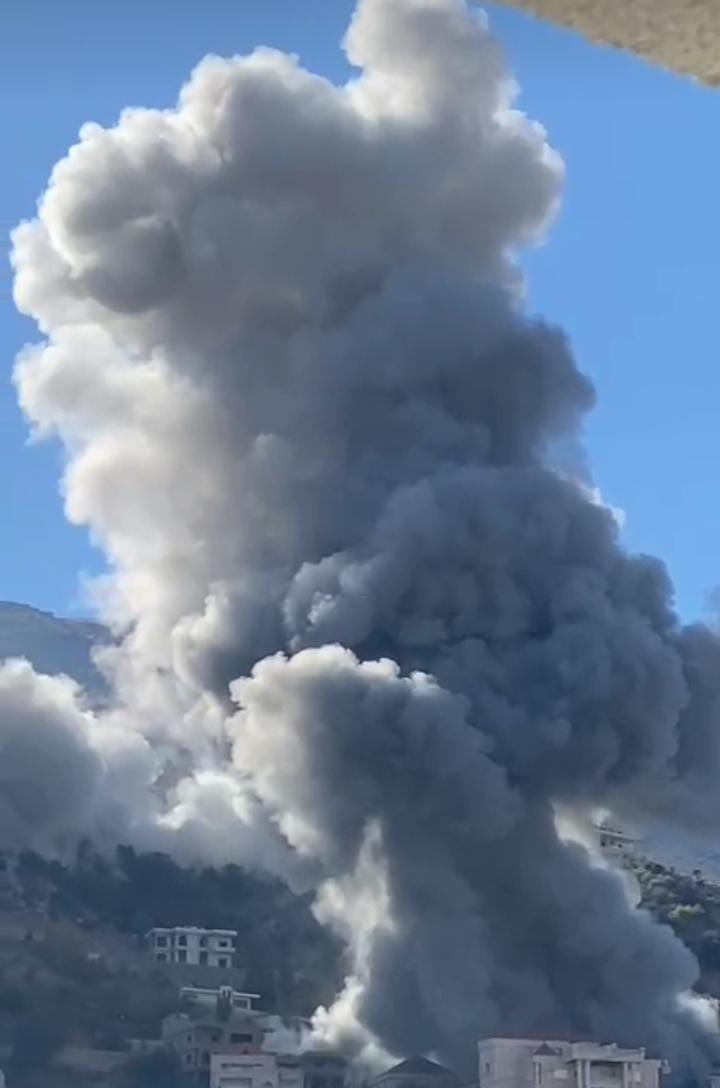And it’s true. My mind is overwhelmed with what is happening here in Lebanon. The bombings are endless, and consequently, so is the killing. This sudden overload of trauma clouds our minds. It feels like we’re running on adrenaline for now, but eventually, the pain will follow when the reality truly sinks in.
I'm writing this article not to discuss politics, that’s too controversial and divisive in a time like this. Instead, I want to share my experience as a South African living in the midst of a war. It’s a rare, personal perspective on the chaos that is unfolding around me.
I have been living in Lebanon for over a year now, working as a missionary among Syrian refugees in the Beqaa Valley. When I first arrived, I knew Lebanon had its challenges. The country had endured many wars in the past, and since 2019, Lebanon has been grappling with one of the worst economic crises the world has seen in the last century. The flood of refugees from neighboring Syria has added to the strain. But despite these struggles, Lebanon was known for its warmth and resilience. People from different faiths lived side by side in a rare kind of harmony, forged through shared hardships. I remember a mentor telling me, "For a Middle Eastern country, Lebanon is one of the less dangerous ones."
That was true… until now. Today, Lebanon is the latest war zone on the planet. It breaks my heart to witness the destruction, the loss of innocent lives, and the displacement of people who never wanted any part of this conflict.
For the past ten days, the attacks have been relentless. Airstrikes leave devastation in their wake, and we never know when or where the next rocket will hit. It has become clear that no place is truly safe. The rockets don’t discriminate between populated or unpopulated areas, and the reports always come back the same: "possible Hezbollah targets in the area." Hundreds of lives have been lost in the past week alone. Just as I’m writing this, the largest attack so far hit Beirut, leaving behind a crater fourteen stories deep, killing and injuring many civilians along with some actual targets.
How has this affected me personally? I thank God for His protection so far and for giving me mental resilience in these uncertain times. But the danger is always there. I remember receiving a message from the Israeli army on Monday, warning us to leave the valley within two hours before they started heavy rocket fire. It was the first time I truly felt nervous. My passport and some cash were ready in case I needed to flee. But in the end, I stayed. After all, where would I go? Nowhere is safe. God’s protection was with us, and the attacks came as close as 4 km north and 7 km south of our village.
Despite the constant danger, people are still finding ways to help each other. Tens of thousands have fled to safer places, and even our village is taking in refugees. Strangers are opening their homes, schools have become makeshift shelters, and volunteers are preparing food and distributing mattresses and blankets. I’m grateful that I am in a position to help rather than needing help myself, at least for now. With the recent attack on Beirut, we are expecting more refugees to arrive, and preparations are already underway to welcome them.
As a man, I think we all imagine at some point what it might be like to be in a war. But I never imagined it would be like this, constant threats, no time to process what is happening. In my imagination, I always had some control, but here, in reality, we have absolutely none. The situation intensifies with every new attack, and the nights are shattered by the sound of rockets, jarring us awake and leaving us in confusion. The toll is immense, but we keep going because, in times like these, there is no other choice.

